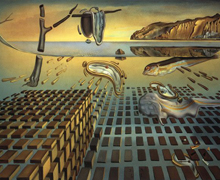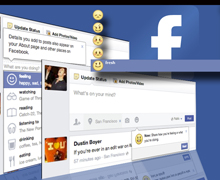By Marc | It’s probably the most boring piece of social commentary possible — “We have more information at our fingertips than ever before!” — but “available information” is a far cry from information really in-forming us, dwelling within us as a living presence, the memorized poem leaping into the mind, the myth accompanying our experiences and guiding our actions, the anecdotes, psalms, and lessons branded on the heart, acting as our own personal Virgil through this tear-stained purgatory.
The difference between having a memory and being able to “look something up,” even if the information accessed is identical, is that the former is life within you — the later is something consumed. I google what I need to know, regurgitate it, and move on. I cram for tests, excrete, and immediately forget entire classes. But the lines I strive to memorize…
My heart in hiding / Stirred for a bird, — the achieve of, the mastery of the thing!
…they stay, and who knows what they will do to the inner workings of my spirit.
The Jews said that idol-worshipers would become like their idols. Well, God save the Jews — we are becoming our computers. We memorize less — we “access” more. We “open files” on command, use them, and consign them to an oblivion from which they rarely arise.
How heartbreakingly obvious this is in Internet “debates,” wherein combox-combatants look up their arguments as they argue, google logical fallacies as they accuse each other of them, gathering evidence as it becomes necessary. It’s not that one cannot reach a position of justified belief through this method. No, I break out in “existential hives” — to quote, if I remember correctly, Pope Francis — because none of what is being said means anything to anyone. Reading Facebook debates is like listening to a schizophrenic Wikipedia mumble out an argument with itself. It is not what dwells within being made manifest — it is what dwells without being referenced without citation. Whoever wins, the Internet wins.
Memory is married to meaning. What stays in us is usually what matters to us — this the joy and the sorrow of the stuff. The countless times I’ve purchased gas or put on socks — scattered in the oblivion of forgetfulness and the smear of generality. The day my friend killed himself — present, roaring into the mind, even when I would it scatter. Our capacity for memory is not naturally disposed to a deluge of information. It does not catch everything, like a bucket in the rain. It filters. It distills. It narrows life to what matters, drawing meaning from the meaningless, narrative from history, poetry from “information,” and story from facts following facts. Through memory, we are boiled down to our essential liquor.
No one asks what the Greek gods are doing outside of those things bulging with significance — their battles, births, deaths, lusts, loves and sacrifices. It pleased the myth-makers to forget “Day 1,208, Zeus Orders More Lightening Bolts.” Memory, then, insofar as it reduces events into meaningful narrative, is something of the myth of our selves, the legend of our lives told back to us — our births, deaths, sins and loves. Memory is not the historiographer of existence, she is the bard, the muse — our picky, choosy, selective queen.
But behold, the Internet mind! We give what is most meaningful to technology for safekeeping, filming and photographing every encounter we deem noteworthy. Whether with an important person, a wonder of nature, a work of art or a testament of human history — we are there, snapshot, grinning desperately. We look everything up — the physicists, the philosophers, the theologians and the poets. We can save every note, upload every quote, and post every experience — and we do, with greater or lesser vigor, giving the task of rescuing and upholding our meaningful past to technology.
(How pathetically this is shown in Facebook’s “Timeline,” where our Internet-uploads are presented as our personal history, and, at the new year, Facebook “selects” the most meaningful “moments” and plays them back to us in a slideshow. I cannot convince myself to click on its offer, but I am curious — does it show the deaths? And what music accompanies them?)
The danger of all this is the reason I am struggling to remember…
Because the Holy Spirit over the bent / world broods with warm breast and, ah! bright wings.
Technology is not a neutral alternative to an active, honed memory. It keeps an event, but as a dead thing waiting to be accessed — not as a life within me, not as a psalm leaping to the lips. And though perhaps we are not so far gone as to allow our videos and photos to replace the activity of memory (perhaps our memories nourish us as strongly as ever, despite our busy efforts at capturing them and making them into immediate objects of public interest) surely we are on our way. I, at least, have gone so far as to allow saving-and-searching technology to replace my ability to memorize poetry, memorize scripture, memorize meaningful history, philosophy and science. An iota of research into the beautiful words and terrible events that our forefathers carried in their minds is downright depressing in comparison.
A mind that does not “take to heart” and “commit to memory” will not cease to remember — it will lose it’s capacity to distill, to select. Unable to build a narrative out of the deluge of events, it floats in the base, attractive, shiny and distracting. A memory that gives itself to technology does not grab things to remember and hold them there — technology does that. Rather, in this passive mode, it is grabbed. Our minds become the fertile ground for the windblown seeds of the novel, the perverse, and the titillating, no longer the creator of a legend, but the weedy creation of culture, saying with Patrick Stickles of Titus Adronicus: “And half the time I open my mouth to speak / It’s to repeat something I heard on TV.”
When memories cease to be a living presence and becomes a saved file, they tend towards a perverse equality with every other memory. My friends who die show up on my News Feed beneath advertisements for tacos and below the saved and stored photos of the “Beach Week 2014″ of white people I don’t know — I pray, but am not confident, that this will not effect my spiritual encounter with the reality of my friends’ newfound absence. The danger of giving our memories to technology is that technology does not discriminate. When I do not work to contain within myself living memories to spring up in response to the joys and sorrows of life, when all my meaningful memories are accessible and referenced “out there” instead of living “in here,” then I have lost my capacity to remember meaningfully — I do not carry a story of my own life within me. Facebook has my “timeline,” and the timeline is trivial.
Without the labor of ritual, the soul-shaping work of carrying words and beautiful images in side of our minds and hearts, the discipline of memorization, and that self-shaping prayer of the heart, we will become unable to distinguish the important from the unimportant — unable to forget what we ought in order to keep what we ought.
If you found this blog post of interest, you might want to explore these Free Think University courses:
- Are You a Critical Thinker?
- Classical Poetry: Whispers of Immortality?
- Is Moral Education Important?
For this third party post in its full context, please go to:
The Facebook Timeline and the Disintegration of Memory
© 2014. The Bad Catholic Blog. www.patheos.com/blogs/badcatholic



